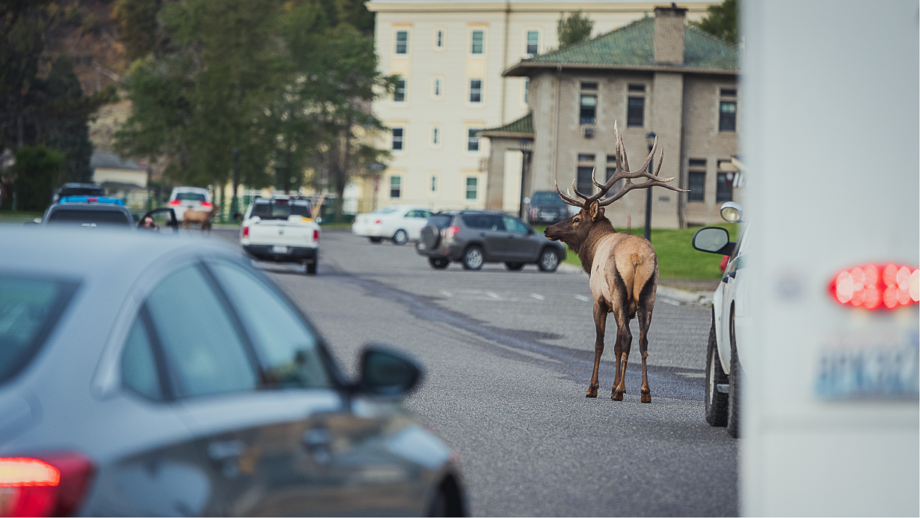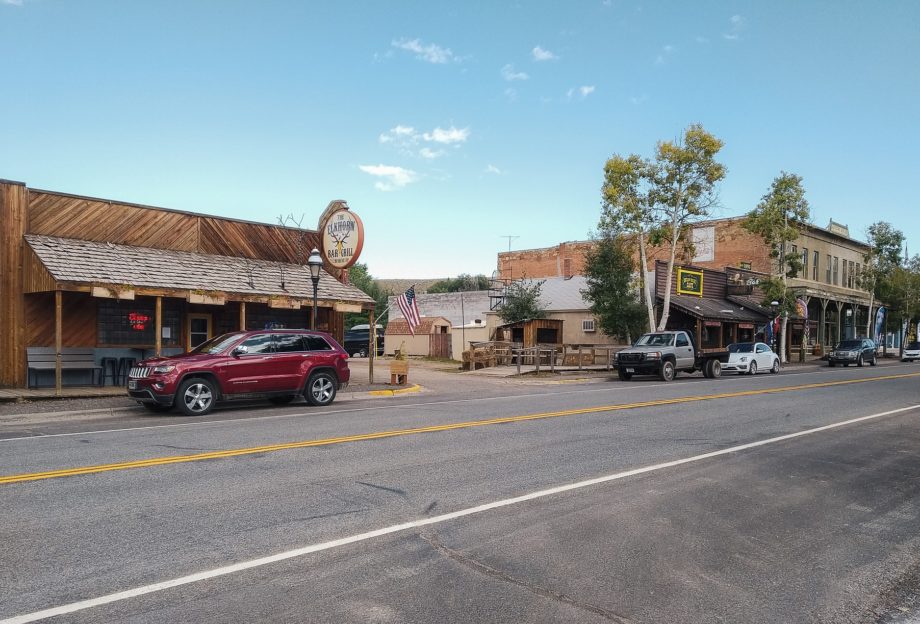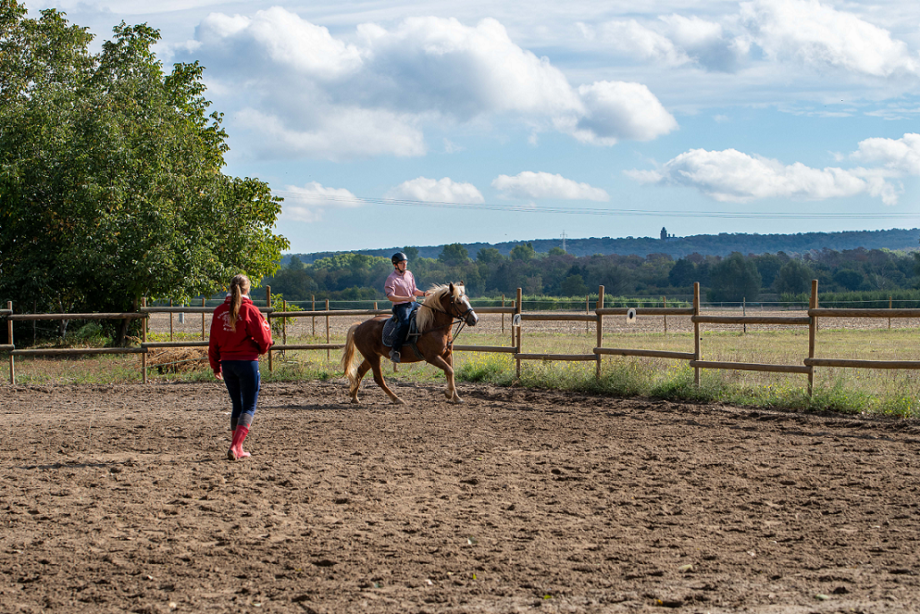On hold: how to use waiting time effectively?

Image 1: Like the traffic here, my project has also come to a standstill. Photo by: Daniel Jakli.
My research project
In my dissertation I examine American conservatism from a culturally oriented perspective in the northeast of Wyoming. Following Arlie Hochschild (2016) and Katherine Cramer (2016), I understand American conservatism as a general way of life in which a nature-oriented lifestyle and, related to this, individual freedom are central elements. To this end, the project draws on current theoretical and methodological debates which, on the one hand, attempt to “relationally” reorder the relationship between human beings and their environment (Ingold 2000, Tsing 2015, Latour 2018), and, on the other hand, focus on the epistemological significance of sensual experience (Spittler 2001: 19-21, Pink 2009), with a particular emphasis on the acoustic dimension (Feld 2012, 2015).
The aim of the project is thereby to transcend discursive understandings of conservatism and ask, against this background, how the experience of the environment contributes to the way people fundamentally position themselves in the world.

Image 2: Meeteetse Main Road – for more information about my stay in Meeteetse. Photo by: Daniel Jakli.
For this purpose, my fieldwork in Wyoming focuses on three different aspects where the interrelation of human, conservatism and environment is revealed: Part a) deals with the study of hunting and ranching practices in the Meeteetse region to explore the sensual experience of the environment, which, according to the thesis, is so essential for understanding conservatism as a way of life; part b) focuses on the two bars of Meeteetse as places where the experiences of a) are socially shared, jointly conceptualized and interpreted meaningfully; part c) includes the study of the black-footed ferret conservation program in the region to observe conservatism as a political practice with regard to wildlife conservation.
Current status
My actual fieldwork in Meeteetse was supposed to start in August 2020 and last 12 months in total. Due to the unclear situation in the USA regarding entry regulations and the severity of the pandemic, my research is currently on hold. Since the basis of my work is the sensual perception of the environment, it is difficult to conduct my research from a distance (i.e. through digital technologies), without losing what sensory ethnography is all about – “to develop experience-based empathetic understandings of what others might be experiencing and knowing” (Pink 2009: 65). Nevertheless, I am trying to use my time as effectively as possible and bring a microscopic fragment of my field to my home if that is possible at all.
Dealing with the pandemic
When the corona pandemic broke out, I was, as far as my doctoral thesis was concerned, generally in a kind of limbo, which I guess familiar to many doctoral students. At the beginning of the year I had submitted several applications for scholarships and was now hoping for positive results, since my contract at the University of Mainz expired at the end of the winter semester 2019/20. After two refusals in April I was at a low point. Due to the spreading pandemic, I had little hope that I still had a chance with the outstanding applications, as my project could not be realized in the near future. I was convinced that the feasibility of the project would be included in the evaluation and that no one would support such a project at that time.
The uncertain situation slowly began to affect my everyday life. I was feeling depressed and lost the motivation to continue working on my project. To be honest, I even started to consider quitting my doctorate. As a result, I spent more and more time with wildlife photography, my second passion, designed my own homepage and got involved in bird conservation. All this distracted me from the actual problem, but also actually helped me to deal with the situation without completely losing grip. Furthermore, my wonderful wife helped me to get up every morning to start my daily activities.
Then in early May, surprisingly, there was a thick letter from the Studienstiftung in my mailbox. My wife Elisabeth had to open it for me because I did not dare. It was a confirmation for a two-year scholarship with the possibility to extend it by one year. I was speechless. My financial worries were gone, and I began to find courage again. Nevertheless, it took me a few weeks to really feel happy about the scholarship, because the pandemic and the travel restrictions were still there, and I didn’t know what to do.
How to use waiting time effectively?
After a few weeks, while I was working on some other projects at the department, I found an opportunity to use part of the free time to prepare myself for my fieldwork in the best way possible – horse riding lessons. To find out about fieldwork conditions, I had already spent one month in Wyoming and had noticed that horse riding still is of crucial importance to many of the residents. Horses were not only used for cattle driving, but also for hunting in the mountains and as a leisure activity. Therefore, I thought that the ability to ride a horse might make it easier for me to enter these important areas of my field or even make it possible at all. Furthermore, I have to admit that horses, their size, strength and behaviour tend to frighten me and that, in Wyoming, I had gotten into situations where I wished I were able to handle these animals. Besides, in consultation with my supervisor, I decided to use the time in the riding school to not only explore the method of sensory ethnography, but also to collect general data about human-animal relationships.
Lessons from the riding school

Image 3: On the riding ground with my teacher Caroline. Photo by: H. Dorsch.
It happened in the third riding lesson. I was unfocused for a moment during the trot, my horse Lia bucked, and I lost my balance. Before I realised it, I was lying in the hard sand. My head was quite sore and my neck was so torn that after a few days of severe headaches and dizziness, I went to the hospital to have my head and spine examined. Fortunately, everything was fine and after a week I felt much better and was back in the saddle. But only two weeks later another incident occurred. During stable work, I overexerted my already damaged back, so that I could hardly move for a week. It is important to mention that this stable work (e.g. mucking-out, laying out straw and hay and mending stables) is only a small part of the work that needs to be done at the riding school every single day. And I could not even stand this physical work for a single day.
After days of frustration during which I had severe physical pain and at the same time felt ashamed of my physical weakness, I began to take this experience as a banal but nevertheless important first insight that could hardly have been gained more sensually and physically than I had during my lessons at the riding school – to live and work with horses is physically tough!
Due to my short stay in Wyoming in the fall of 2019, I was already aware that my research would be very physically demanding. The work on a ranch that I had planned as well as the participation in the hunt, where one is often exposed to the harsh climate for several days in the mountains, is hard and would demand a lot from me. However, I had skillfully put this fact aside so far. Immersing myself in the everyday life at the riding school brought this physical dimension into focus again and in order not to get lost in my field research in Wyoming, I have now decided to increase my physical strength substantially – something I sure did not consider an important part of my fieldwork preparation before.
Apart from this rather pragmatic fact, I wonder if there are other conclusions that I can draw from my time spent at the riding school. Are there any parallels to my actual research? I think indeed, there are. Hard work plays an important role in American conservatism and in the rural US in general (Cramer 2016: 72). But do such considerations lead anywhere? And what about the sensual interaction between me and my horse – what lessons have been gained from this sensual experience that could be important for my future research? Or isn’t it rather the case that sensual experience is composed of a symphony of sensory impressions that are always contextual and integrated into discourses or at least move on the margins of these (Wrana & Lange 2007) – therefore, should not be examined separately?
There are many other questions buzzing in my head some more concrete, some less. But I guess this is quite normal in an uncertain situation like this, and thus we would probably do well to stick to what we as anthropologists do best – reflect upon situation calmly and objectively. In this way we can readily avoid “that the multiplicity of coronavirus/lockdown/quarantine ethnographies will […] turn out to be an overabundance of ad hoc interpretations” (Góralska 2020: 50)
Written on 8 October 2020
Daniel Jákli started his doctoral studies in May 2019 at the Department of Anthropology and African Studies at the University of Mainz. Before that, he studied culture anthropology and sociology in Bayreuth and Göttingen, where he graduated with his thesis “Not so rosy: neighborhood and resource conflicts in Naivasha, Kenya”. Contact: djkli[at]uni-mainz.de
References
Cramer, Katherine. 2016. The Politics of Resentment: Riral Consciousness in Wiscons and the Rise of Scott Walker. Chicago: University of Chicago Press.
Feld, Steven. 2012. Sound and Sentiment: Birds, Weeping, Poetics, and Song in Kaluli Expression. Durham: Duke University Press.
Feld, Steven. 2015. Acoustemology. In: Novak, David & Matt Sakakeeny (eds.). Keywords in Sound. Durham: Duke University Press, pp. 12-21.
Góralska, Magdalena. 2020. Anthropology from Home: Advice on Digital Ethnography for the Pandemic Times. In: Anthropology in Action 27 (1), 46-52.
Hochschild, Arlie. 2016. Strangers in their own land: Anger and mourning on the American right. New York: New Press.
Ingold, Tim. 2000. The Perception of the Environment: Essays on livelihood, dwelling and skill. London: Routledge.
Langer, Antje & Wrana, Daniel. 2007. An den Rändern der Diskurse. Jenseits der Unterscheidung diskursiver und nicht-diskursiver Praktiken. In: Forum: Qualitative Sozialfoschung Vol. 8 (1).
Latour, Bruno. 2018. Das terrestirische Manifest. Berlin: Suhrkamp.
Pink, Sarah. 2009. Doing Sensory Ethnography. London: Sage.
Postill, John & Pink, Sarah. 2012. Social Media Ethnography: The Digital Researcher in a Messy Web. Media International Australia.
Spittler, Gerd. 2001. Teilnehmende Beobachtung als Dichte Teilnahme. In: Zeitschrift für Ethnologie 126, 1-25.
Tsing, Anna L. 2015. The Mushroom at the End of the World: On the Possibility of Life in Capitalist Ruins. Princeton: Princeton University Press.

































